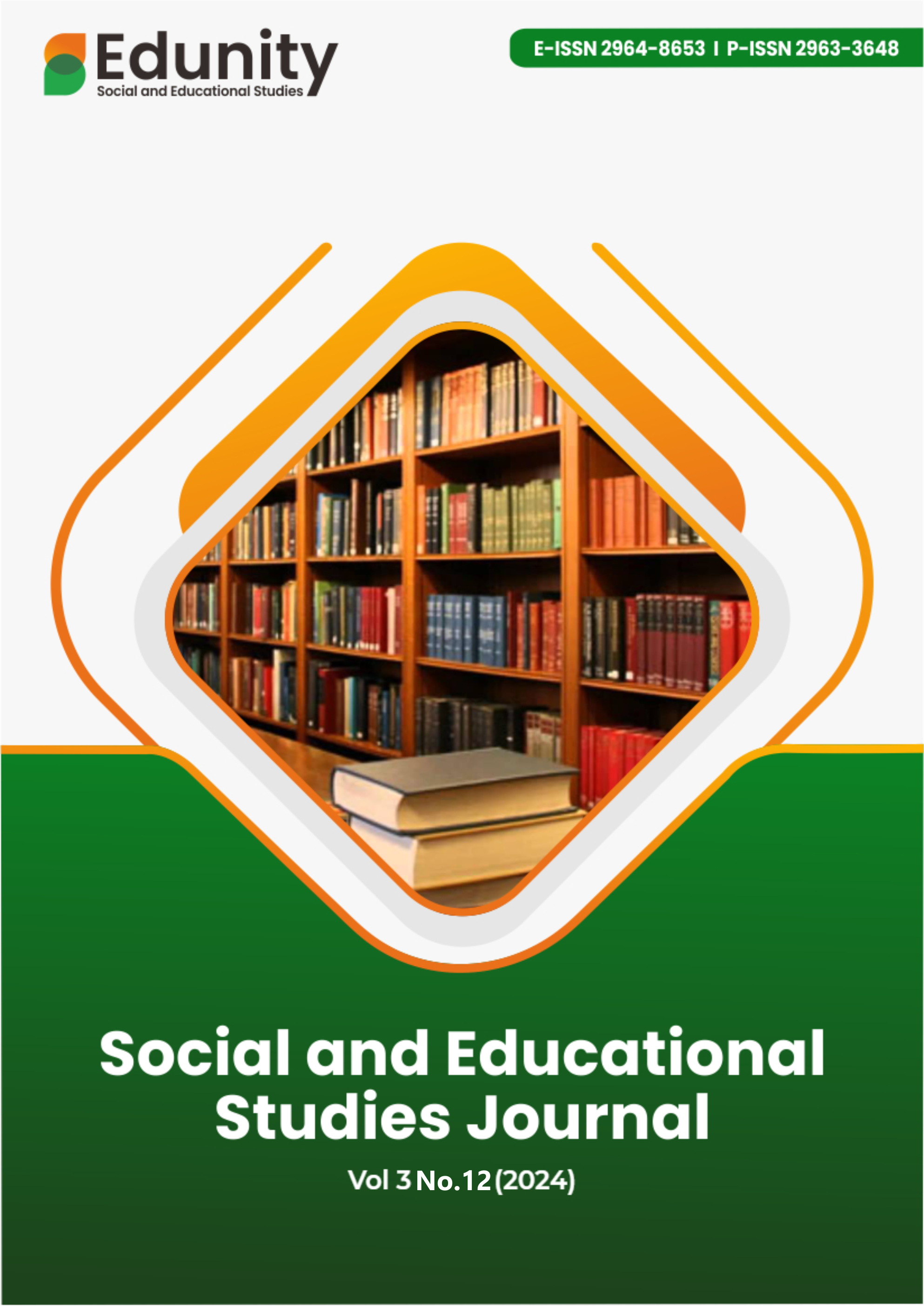The Position of Civil Servant Investigators in the Disclosure of Money Laundering Crimes after the Constitutional Court's Decision Number 15/PUU-XIX/2021
DOI:
https://doi.org/10.57096/edunity.v3i12.341Keywords:
civil servant investigator, integrated criminal justice systemAbstract
The role of Civil Servant Investigators (PPNS) in Indonesia has evolved, particularly
following the Constitutional Court Decision Number 15/PUU-XIX/2021, which
expanded their authority in money laundering investigations. This study aims to
analyze the impact of this decision on the position and authority of PPNS within the
integrated criminal justice system. Using a normative legal approach, the research
employs primary data from the Constitutional Court s ruling and secondary data from
legal literature and relevant media sources. The findings indicate that the Constitutional
Court s decision not only enhances the investigative powers of PPNS but also aligns
them with other law enforcement agencies, such as the National Police and the
Corruption Eradication Commission. Despite this expansion, the study highlights ongoing challenges, particularly the dependency of PPNS on police investigators during
the prosecution process. The relationship between PPNS and other law enforcement
officials is crucial for effective law enforcement and the prevention of money
laundering crimes. The study concludes that the broadened authority of PPNS should
be viewed as a collaborative effort rather than competition, emphasizing the
importance of coordination among agencies to strengthen law enforcement efforts in
Indonesia.
References
Astrada, M. L. (2018). The Nature of the Judicial Process: A Complex Systems
Analysis of Checks & Balances & Separation of Powers in the Present
Political Context. Rich. Pub. Int. L. Rev., 21, 263.
Dawali, N. N. I., Akub, M. S., & Azisa, N. (2022). The Effectiveness of
Coordination and Supervision of Civil Servant investigators (PPNS) by
Republic of Indonesia Police Investigators in the Jurisdiction of South
Sulawesi Regional Police. Khazanah Hukum, 4(3), 213–229.
https://doi.org/10.15575/kh.v4i3.20572
Di Amato, A., & Fucito, F. (2020). Criminal law in Italy. Kluwer Law
International BV.
Eck, J. E., & Rossmo, D. K. (2019). The new detective: Rethinking criminal
investigations. Criminology & Public Policy, 18(3), 601–622.
https://doi.org/10.1111/1745-9133.12450
Fahsing, I. A. (2016). The making of an expert detective: Thinking and deciding in
criminal investigations.
Fitrah, F. A., Takariawan, A., & Muttaqin, Z. (2021). The Position of Civil
Servant Investigator of Directorate General of Tax (DGT) in the Frame of
Taxation Criminal Law Enforcement in Indonesia. SIGn Jurnal Hukum, 3(1),
–25. https://doi.org/10.37276/sjh.v3i1.107
Flora, H. S., Syah, K., Erwin, E., Laila, S. A. N., & Lawra, R. D. (2024).
Comparative Analysis of Criminal Laws on Money Laundering in ASEAN
Countries: Between Justice and Protection. UNES Law Review, 6(3), 8930–
https://doi.org/10.31933/unesrev.v6i3.1798
Langford, M. (2024). The Three Worlds of Systems Theory.
Mulayim, S., Lai, M., & Norma, C. (2014). Police investigative interviews and
interpreting: Context, challenges, and strategies. CRC Press.
Onuigbo, R. A., & Eme, O. I. (2015). Analyses of legal frameworks for fighting
corruption in Nigeria: problems and challenges. Arabian Journal of Business
and Management Review (Kuwait Chapter), 5(3), 1–33.
Romaniuk, S. N., Kaunert, C., & Fabe, A. P. H. (2023). Countering terrorist and
criminal financing: Theory and practice. CRC Press.
Salamony, J. W. (2023). Optimalisasi Penyidikan Tindak Pidana Pencucian
Uang Dengan Tindak Pidana Asal Tindak Pidana Perikanan (Perspektif
Sistem Peradilan Pidana Terpadu Pasca Putusan Mahkamah Konstitusi
Nomor 15/PUU-XIX/2021). JURNAL LEX SPECIALIS, 4(2).
Satoto, S., Ardilafiza, A., & Musriza, R. (2024). Implications Of Filling The
Position Of Attorney General By The President On The Independence Of
The Prosecutor’s Office In Carrying Out The Functions Of Judicial Power.
Ipso Jure, 1(5), 12–36. https://doi.org/10.62872/1e2sf581
Sitompul, S. M., Sulistiani, L., Rukmini, M., & Rompis, A. E. (2021). Optimizing
the Role of Civil Servant Investigator in Indonesian Law Enforcement. J.
Legal Ethical & Regul. Isses, 24, 1.
Sjafii, A., & Pratiwi, N. M. I. (2019). Phenomenon of Civil Servant Investigator
Position (PPNS). 1st Aceh Global Conference (AGC 2018), 90–94.
https://doi.org/10.2991/agc-18.2019.14
Suhana, I., Bogar, W., & Mandagi, M. (2023). The Role of Civil Servant
Investigators (PPNS) in Implementing Regulation of the Director General
of Sea Transportation No: Kp. 222/Djpl/2019 in Supporting the Main Duties
and Functions of Class II Bitung Sea and Coast Guard Bases for
Enforcement of Law No. 17 of 2008 Concerning Shipping. Technium Soc. Sci.
J., 44, 53.
Watch, I. C. (2024). Policy Paper Implementation and Regulation of Ecological Losses
Valuation in the Calculation of State Losses in Corruption Cases in the Extractive
Industries Sector.

Downloads
Published
Issue
Section
License
Copyright (c) 2024 Jetter Wilson Salamony

This work is licensed under a Creative Commons Attribution-ShareAlike 4.0 International License.
Authors who publish with this journal agree to the following terms:
- Authors retain copyright and grant the journal right of first publication with the work simultaneously licensed under aCreative Commons Attribution-ShareAlike 4.0 International (CC-BY-SA). that allows others to share the work with an acknowledgement of the work's authorship and initial publication in this journal.
- Authors are able to enter into separate, additional contractual arrangements for the non-exclusive distribution of the journal's published version of the work (e.g., post it to an institutional repository or publish it in a book), with an acknowledgement of its initial publication in this journal.
- Authors are permitted and encouraged to post their work online (e.g., in institutional repositories or on their website) prior to and during the submission process, as it can lead to productive exchanges, as well as earlier and greater citation of published work.






